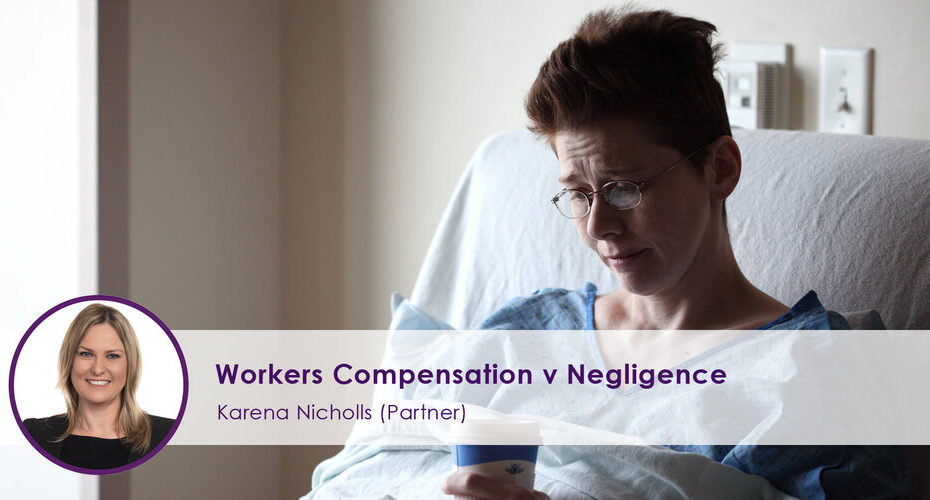KEY TAKE OUTS:
- Workers Compensation is a no fault scheme, regulated by SIRA the Regulatory Authority
- An entitlement to Work Injury damages arises when the employer is negligent, however negligence alone is not enough and certain criteria needs to be met
- Some work injury damages claims may result in court proceedings
What is the difference between workers compensation and work injury damages?
Workers Compensation is a no fault scheme. The criteria is that “work is a substantial contributing factor”. The scheme has guidelines and regulations that are regulated by SIRA the Regulatory Authority. Having an injury can be difficult and knowing your entitlements gives you peace of mind. A worker may be entitled to weekly benefits, permanent impairment, medical and hospital expenses. If a worker has died as a result of a workplace injury they may be entitled to death benefits and funeral expenses.
Things you should know:
- Lodge your Injury Claim with your employer and as soon as practicable, within 6 months of the injury. There are some exceptions so seek advice if you are outside the 6 months.
- Weekly compensation should commence within 7 days of lodging the claim form unless liability is denied or for reasons given by the employer;
- Liability should be determined within 21 days.
- Lump sum permanent impairment claims do not close off your other rights but do have an affect on the length of the rights.
- Journey claims are only available if there is a “real and substantial” connection between the employment and the incident that the injury arose.
- A work place capacity assessment can occur at any point in the life of the claim but a decision must be made by 130 weeks.
- The maximum weekly compensation amount is capped and indexed in April and October each year. The maximum amount from 1 April 2019 to 30 September 2019 is $2177.40.
An entitlement to Work Injury damages arises when the employer is negligent. Negligence alone is not enough and the following criteria needs to be met:
- The work injury must be the result of employer negligence.
- You must have at least 15 per cent permanent impairment (assessed by a permanent impairment assessor with qualifications, training and experience relevant to the body system being assessed), and this assessment has been accepted by the insurer or determined by the Workers Compensation Commission.
- You have received all statutory lump sum entitlements for permanent impairment to which you are entitled. This must take place before a work injury damages claim can be settled as the finalisation of a work injury claim stops all other entitlements under the statutory scheme.
Some work injury damages claims may result in court proceedings. Court proceedings for work injury damages must begin within three years of the injury date, unless you have the court’s approval.
Karena knows that each claim is different and will work to ensure you maximise your compensation. Through her experience and knowledge, you know you are getting the best advice.
ABOUT KARENA NICHOLLS:

Karena is a partner at Coutts Lawyers & Conveyancers and heads up the injury compensation (with extensive knowledge in personal injury) and employment law teams. She is passionate and dedicated to helping her clients understand their rights and obligations and advising them on the best course of action to achieve their desired outcomes. It is her practical and client-orientated approach which has attributed to her authentic reputation positioning her as a highly regarded compensation and employment lawyer.
For further information please don’t hesitate to contact:
Karena Nicholls
Partner
karena@couttslegal.com.au
1300 268 887
This blog is merely general and non specific information on the subject matter and is not and should not be considered or relied on as legal advice. Coutts is not responsible for any cost, expense, loss or liability whatsoever in relation to this blog, including all or any reliance on this blog or use or application of this blog by you



